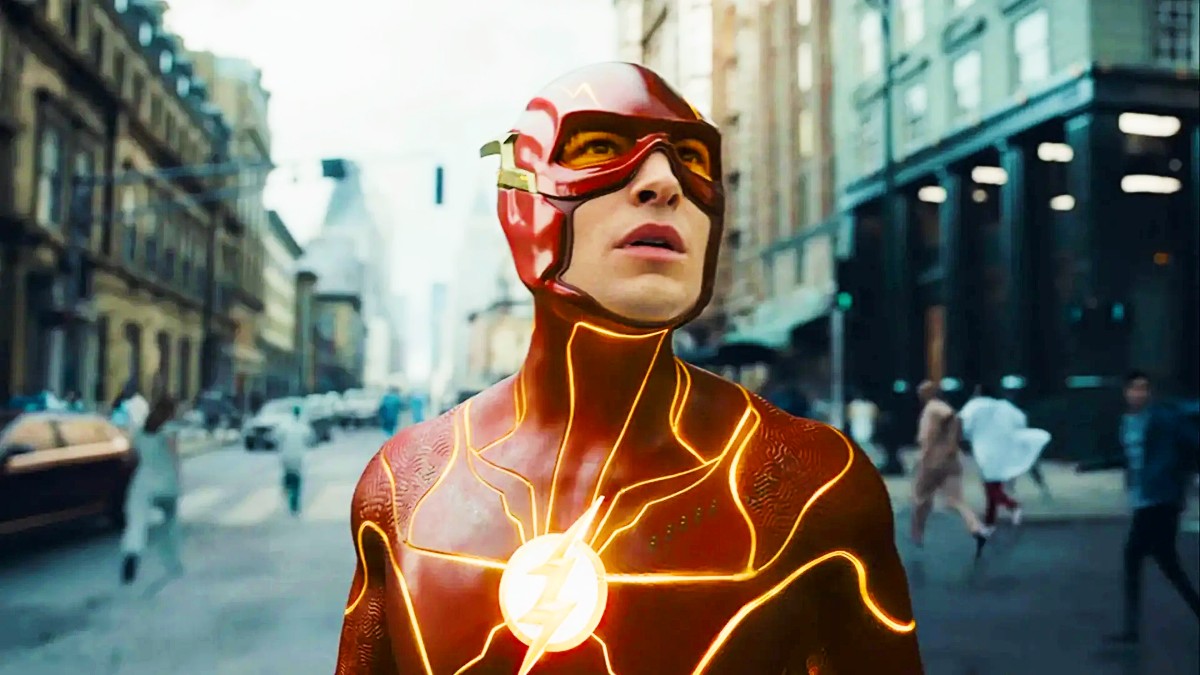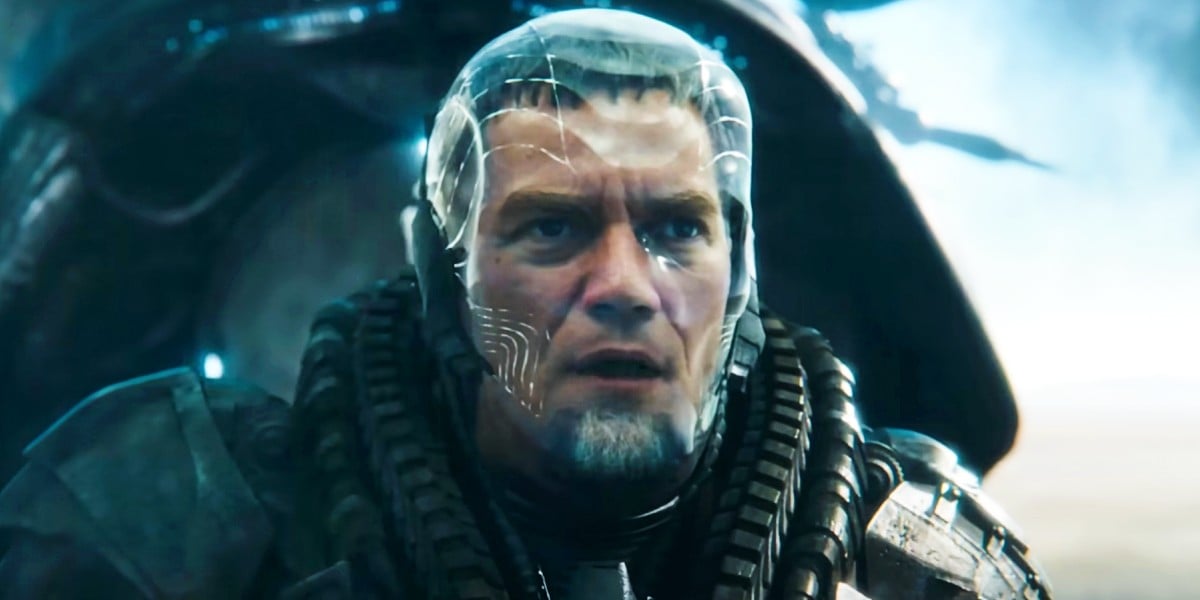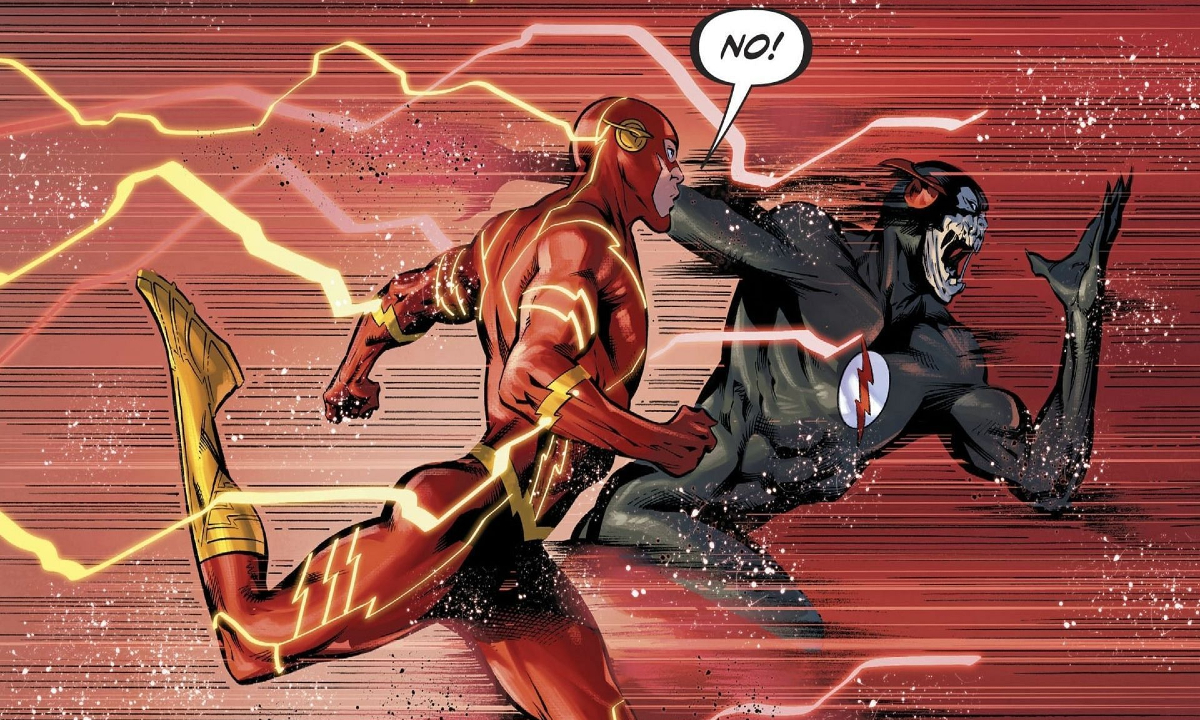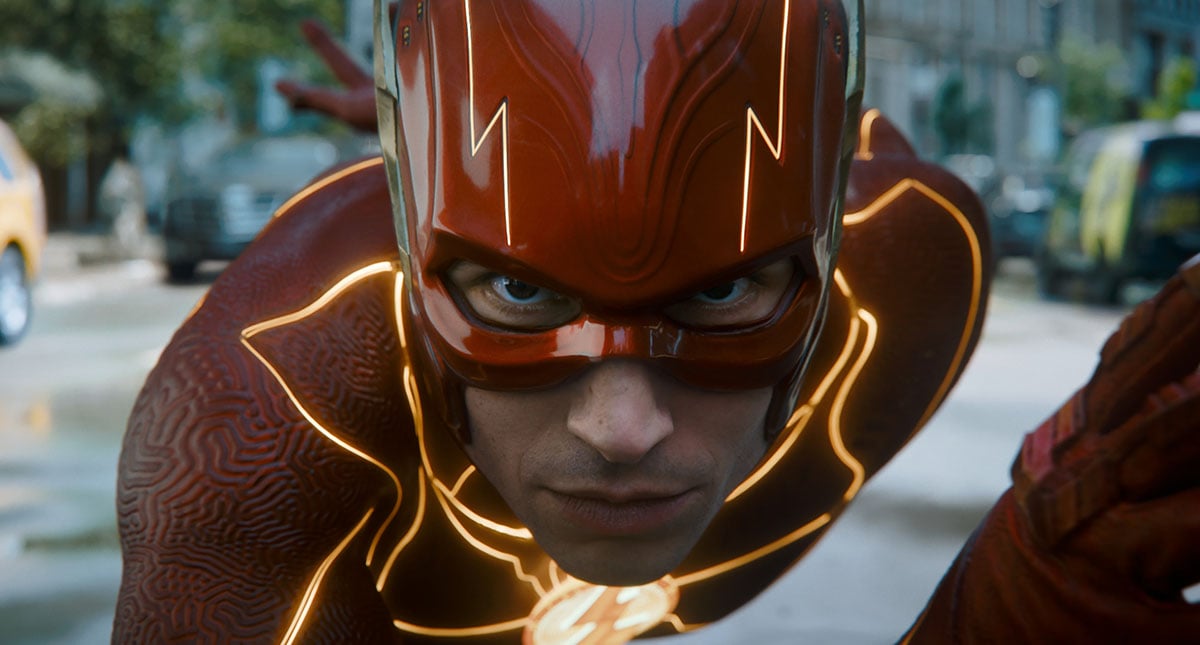What Does the End of ‘The Flash’ Mean for the DCU’s Future?

After multiple delays and controversies, The Flash has finally arrived in theaters. With how much Warner Bros. has hyped the film, it is bound to intrigue anyone who has been following along with the DC Universe. For others, its arrival potentially comes with relief that Ezra Miller’s time in the spotlight may be coming to an end. The actor, who portrays the lead role of Barry Allen (a.k.a. The Flash) in the film, has been involved in a string of concerning controversies and legal troubles that began in 2020 and culminated in their arrest for felony burglary in late 2022. Despite these controversies, Warner Bros. has stood by the actor and refused to recast the role or scrap The Flash.
Given how adamant Warner Bros. was about the potential of The Flash and early reviews singing its praises, some viewers may have been expecting big things from the movie. We’ve known for some time that The Flash would tackle time travel, the multiverse, and alternate realities, which opens the door to numerous possibilities. Some believed that The Flash would introduce Flashpoint and reset the entire DCU to make way for James Gunn’s and Peter Safran’s new regime. Others hypothesized that the film might introduce an alternate universe where the former DCEU heroes and Sasha Calle’s new Supergirl could exist outside of the new DCU continuity.
The ending of The Flash is interesting, but perhaps not as grand as some viewers were expecting. Let’s break down the ending and what it means for the DCU’s future.
Spoilers for The Flash ahead
The Flash can’t stop the inevitable

The Flash has a pretty basic time travel plot: Barry goes back in time to save his mom, but it has a butterfly effect. He ends up getting stuck in 2013 on his way back to the present and finds that the world is already in chaos just a few years after his changes. General Zod (Michael Shannon) is attacking the planet as he did in Man of Steel, but things are different this time because there is no Superman to stop him. Hence, Barry teams up with his 18-year-old self, Batman (Michael Keaton), and Supergirl (Sasha Calle) to stop General Zod from destroying the universe.
The group actually makes a formidable team, but almost all of them are weak or inexperienced, and they’re severely outnumbered. It doesn’t take long before Supergirl and Batman are both killed, allowing General Zod to carry on his plan. 2013 Barry manages to time travel to go back and try to save the pair, but the other Barry quickly realizes that Batman’s and Supergirl’s deaths are inevitable. In every scenario, they die—the entire alternate universe he created is destined to die. The only way he can save it is to ensure that this entire reality never exists.
The Dark Flash rises

As many fans anticipated, Dark Flash does appear in The Flash. While Barry and 2013 Barry argue about whether to continue going back to try to save Batman and Supergirl, the Dark Flash interrupts them. The Dark Flash is the future version of Barry 2013, who spent an unknown amount of time desperately trying to find a way to save the alternate universe and became something almost inhuman in the process. The disruptions to the timeline haven’t just taken a toll on Dark Flash but on the multiverse. Entire alternate universes can be seen colliding and collapsing around the Barrys and Dark Flash due to the timeline disruptions.
However, Dark Flash is still insistent on saving his mother, Nora (Maribel Verdú), and decides he must kill Barry to prevent him from going back and fixing the timeline. As he prepares to deliver a fatal blow to Barry, 2013 Barry sacrifices himself to save the present-day Barry. 2013 Barry’s death means that he cannot become the Dark Flash and the villain quickly disintegrates, allowing Barry to travel back and stop himself from stopping his mother’s death. It isn’t too difficult to do, as a can of tomatoes was the object that kickstarted the sequence of events leading up to Nora’s death. He allows her to forget the can of tomatoes, but he does place it on a higher shelf while noting the security camera placement.
The Flash fixed the multiverse … or did he?

The Flash returns to the present and finds that things have returned to normal. The minor change he made to the placement of the tomatoes was successful in providing evidence in the present day for his father, Henry (Ron Livingston), to be proven not guilty of the murder of his mother. Barry celebrates his father’s release from prison and is asked on a date by Iris West (Kiersey Clemons). No earth-shattering changes are visible as Bruce Wayne gives Barry a call to congratulate him. However, when he walks on screen, we find that it’s not Ben Affleck in the role of Wayne, but George Clooney, who infamously portrayed the hero in 1997.
This is where The Flash ends, and it may leave some viewers baffled. There is a post-credits scene, but it does not address the surprise ending. Clooney’s appearance at the end almost seems like a mere joke that may not be revisited in the future. After all, it’s quite obvious Clooney isn’t going to be the DCU’s next Batman, and we already know that Affleck is returning as Batman in Aquaman and the Lost Kingdom. Hence it wouldn’t be surprising if the Aquaman sequel just ignores this scene, leaving it to viewers’ imagination how Barry fixed the timeline and got the right Batman back. At the same time, it could tease that Barry did not fix the multiverse and that more significant things have changed besides Batman.
Perhaps, this is just the DCU’s way of keeping the door to the multiverse open. It teases that things are not completely back to normal, and there’s no telling how many other changes to the present day there are that could have big consequences. At the same time, having such a drastic change as Batman being Clooney was just a very strange way to end the film because it makes it seem like Barry has to go back and fix the timeline again, thus closing whatever doors might be open by the multiverse still being skewed. Only time will tell if The Flash actually did profoundly change the DCU or if its ending was just for laughs.
(featured image: Warner Bros.)
Have a tip we should know? [email protected]